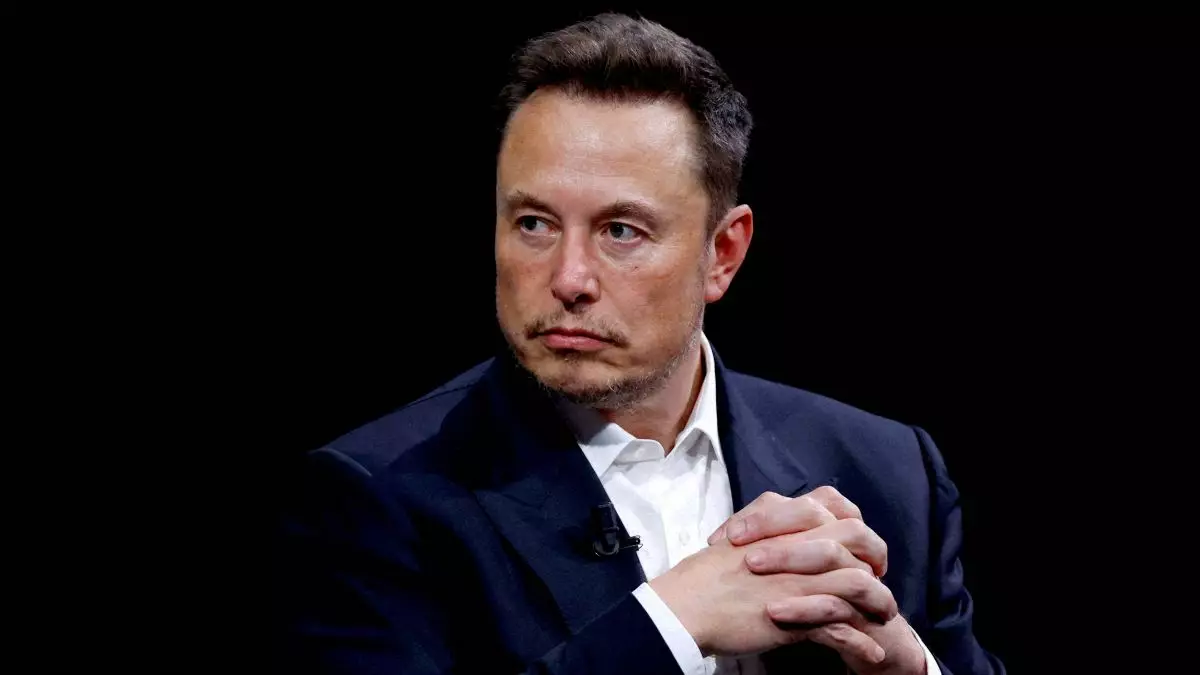In a striking turn of events, the U.S. Securities and Exchange Commission (SEC) has announced plans to penalize billionaire entrepreneur Elon Musk for his failure to comply with a court-ordered testimony surrounding his $44 billion acquisition of Twitter. This development emerged in the wake of Musk’s recent communication, which came just three hours prior to the scheduled September 10 testimony, announcing his absence. Instead of adhering to the court’s directive, Musk opted to oversee SpaceX’s Polaris Dawn mission from Florida’s Cape Canaveral, raising concerns of accountability among regulators.
The SEC’s filing in the San Francisco federal court outlines a request for the court to hold Musk in civil contempt. The central issue lies not only in his absence but also in the implications that he, as SpaceX’s chief technical officer, had prior knowledge of the launch schedule. The SEC argues that Musk’s last-minute announcement was a strategic maneuver to evade testimony, with SEC lawyer Robin Andrews referring to it as “gamesmanship.” This framing suggests that the SEC views Musk’s actions as calculated rather than merely circumstantial, increasing the stakes in this ongoing conflict between the regulator and the tech magnate.
Musk’s legal counsel, Alex Spiro, has argued against the severity of the proposed sanctions, labeling them as “drastic” and unwarranted. He contended that Musk’s presence at the SpaceX launch was vital for the safety of the astronauts involved and positioned Musk’s absence as a product of an unforeseen emergency. While Spiro assured that Musk’s testimony has been rescheduled for October 3, the SEC remains skeptical, as indicated by their concerns that Musk could renege on this new commitment as well.
This incident is not Musk’s first contentious engagement with the SEC. Historically, Musk has had an adversarial relationship with the body, which has often accused him of evading or misinterpreting disclosure regulations. A notable example is his controversial tweet in 2018, wherein he claimed to have secured funding to take Tesla private. This led to legal ramifications including a $20 million settlement and specific conditions regarding his social media usage.
Critically, the latest developments regarding Musk’s Twitter acquisition introduce a fresh layer of complexity to his interactions with investors and regulators alike. Musk garnered significant criticism, notably from Twitter shareholders, for delaying notification of his 9.2% stake in the company, originally acquired in early 2022. This delay arguably violated securities laws requiring disclosure upon reaching a 5% ownership threshold, underscoring the broader implications of regulatory compliance for executives in high-profile tech startups.
The SEC’s escalating efforts to hold Musk accountable highlight the agency’s determination to enforce financial regulations, particularly concerning influential figures in the technology sector. The potential sanctions represent not just a consequence for Musk personally, but a broader message to CEOs who may consider ignoring compliance requirements. It raises questions about the potential ramifications of corporate leadership’s disregard for established laws, particularly when viewed against the backdrop of their responsibilities to shareholders and the integrity of financial markets.
Furthermore, Musk’s narrative of harassment by the SEC, as he has characterized their inquiries, adds an interesting dimension to this saga. His portrayal of the SEC as a persistent adversary resonates with certain audiences who might empathize with his position as an innovator frequently at odds with traditional regulatory frameworks. This divergence fosters discourse on the balance between entrepreneurial risks and the regulatory structures designed to maintain market integrity.
As the SEC gears up for its next legal move against Musk, the implications for the tech industry and corporate governance as a whole are profound. The ongoing tug-of-war between innovation and regulation must grapple with the challenges posed by charismatic leaders like Musk, whose sheer influence and ambition often complicate adherence to established laws. Ultimately, it remains to be seen whether Musk’s pending testimony will quell the SEC’s scrutiny or whether this saga will evolve further, serving as a cautionary tale about the responsibilities that accompany remarkable vision and leadership in the business world.

Leave a Reply